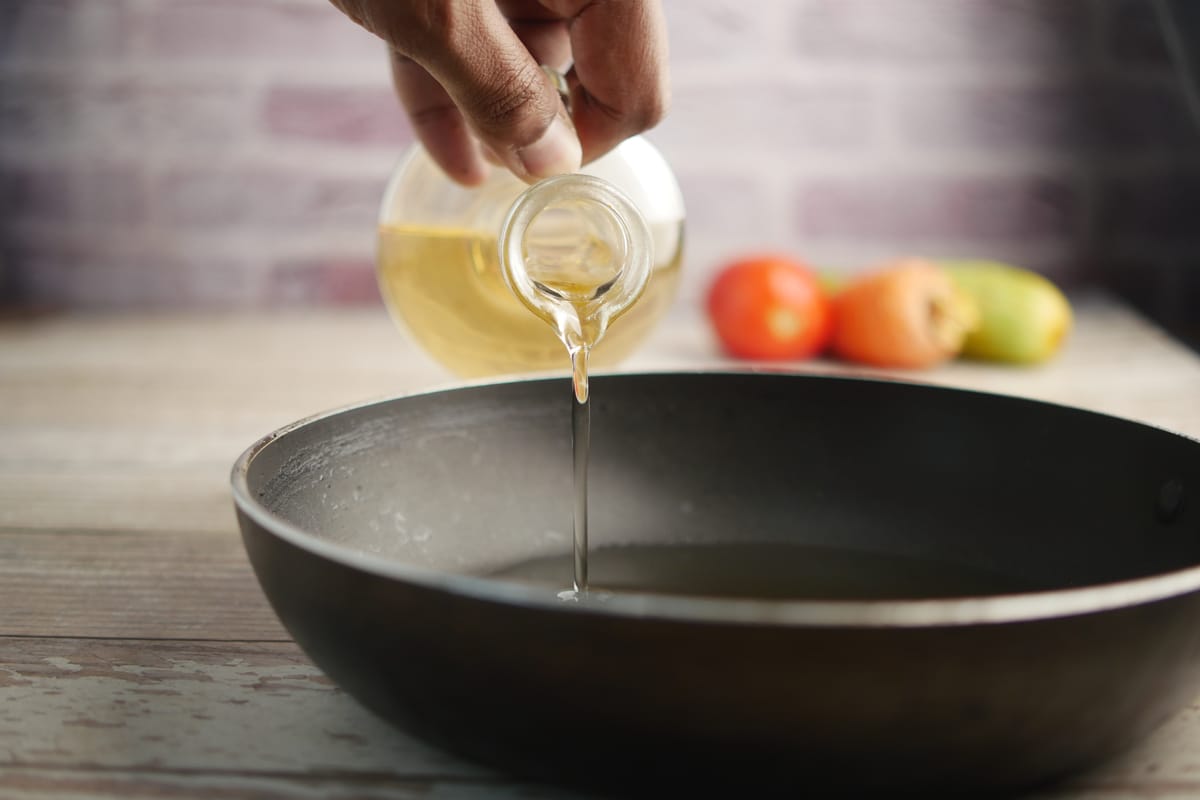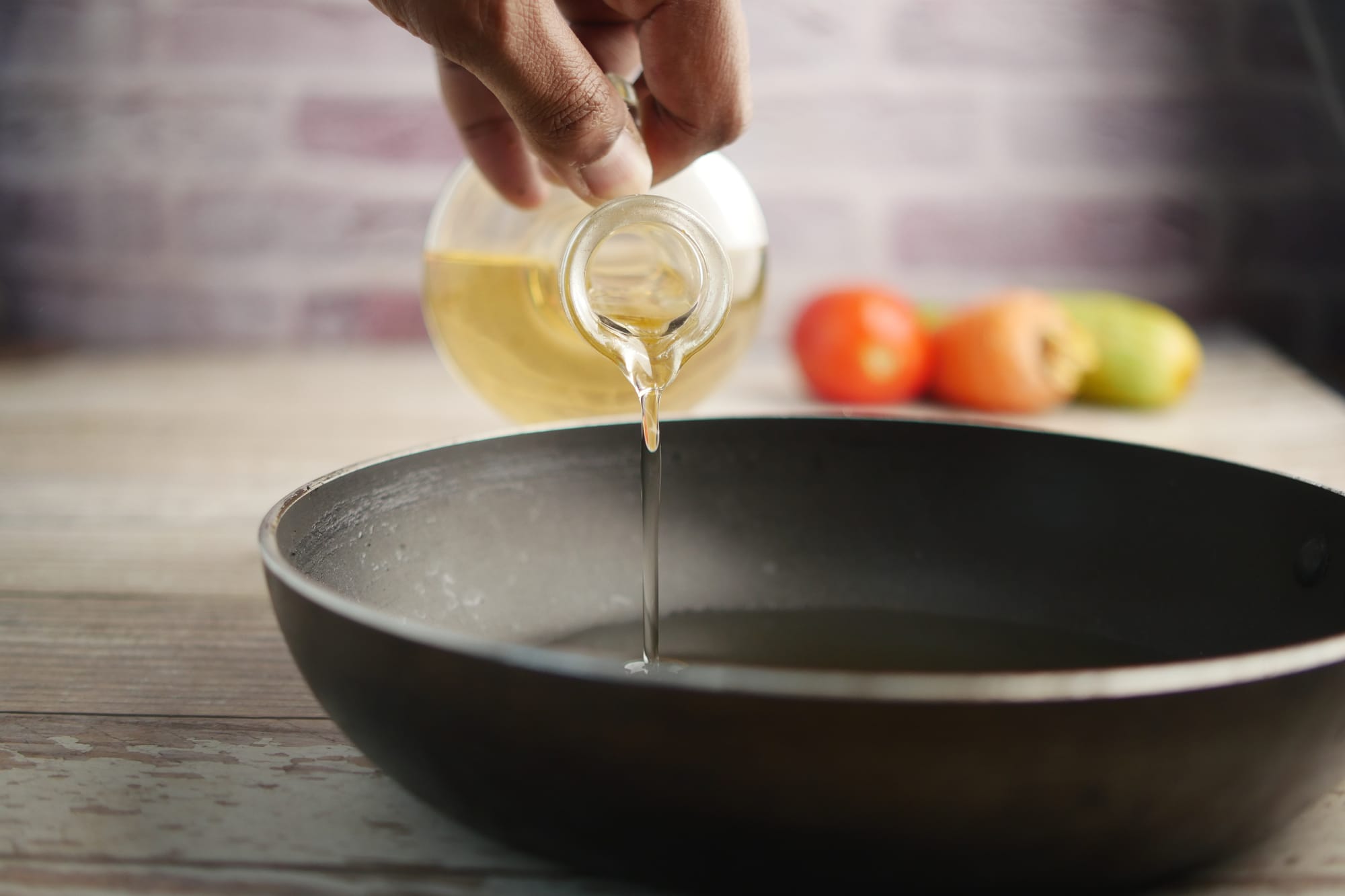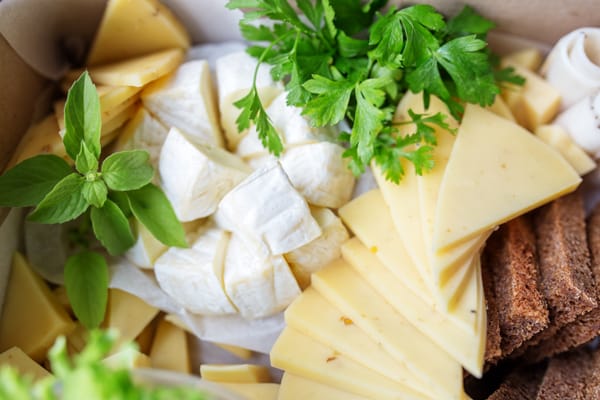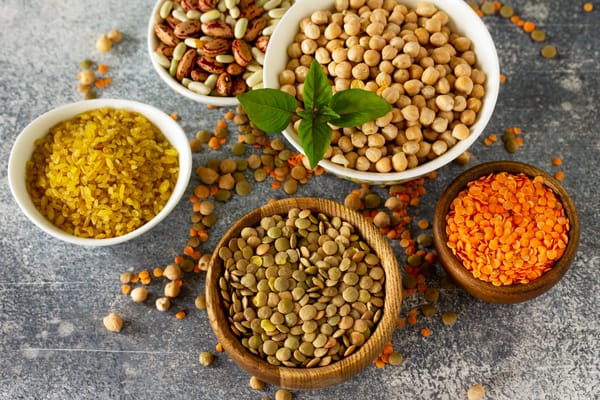Healthy Cooking Oils in Pakistan: A Complete Guide


Have you ever wondered where all the delicious flavour of Pakistani food really comes from? Of course there’s the ingredients and the spices, but what really brings it all to life is our infamous cooking oil. As much as we try to avoid it to try and be healthy, we just know that oil brings so many dishes to life!
But with so many options available today, choosing the right cooking oil requires considering many factors - one of the most important being how it tastes and impacts our health.
In this guide, we’re breaking down some of the most popular healthy cooking oils in Pakistan, comparing both their health benefits and prices, so you can make smarter choices for your family - and your wallet.
How To Choose Healthy Cooking Oils
While we love to get lost in cooking delicious desi meals, we know that excessive or unbalanced use of oil can contribute to health issues like high cholesterol, obesity, and heart disease. Luckily, there are ways to reduce these risks by going for a better oil. That’s why it’s important to consider a few factors when buying your next bottle of cooking oil.
Choose oils with healthy fats
Many cooking oils usually contain trans fats and hydrogenated oils which can increase cholesterol (LDL) levels and also lead to increased risk of heart disease. Monounsaturated and polyunsaturated fats on the other hand are considered “good fats” that help maintain healthy cholesterol levels and reduce inflammation, thereby supporting overall heart health.
Understand smoke point
The smoke point is the temperature at which oil begins to burn and release harmful compounds. For everyday frying or high-heat desi cooking, an oil with a higher smoke point (like canola or rice bran) is safer because it won’t break down as quickly. Oils with lower smoke points, such as extra virgin olive oil, are best reserved for salad dressings or light sautéing.
Consider balance of fatty acids
Both are essential fats, but most diets already contain more Omega-6 than needed. Too much Omega-6 and too little Omega-3 can promote inflammation in the body. Oils rich in Omega-3s (like canola or mustard oil) help maintain a healthier balance and support heart and brain function.
The Best Healthy Cooking Oils in Pakistan
There’s a wide array of options out there when it comes to cooking oil, but maybe there’s some that you haven’t heard of before! So here’s a guide to the best healthy cooking oils that are available, along with their respective health benefits and price ranges. (P.S. You should check out Bazaar App for great cooking oil options at the best prices.)
Canola Oil
Health Benefits:
- Low in saturated fat
- Rich in heart-healthy Omega-3 fatty acids
- Neutral flavor that works well for desi and Western dishes
- High smoke point, ideal for deep frying or everyday cooking
Best For: Everyday cooking, deep frying, baking
Estimated Price Range: Rs. 1,500–2000 per 3-liter bottle (varies by brand and city)
Popular Brands: Dalda Cooking Oil and Mezan Cooking Oil are popular; other brands to try include Sufi and Kashmir.
Sunflower Oil
Health Benefits:
- High in Vitamin E, a natural antioxidant
- Light and mild in taste
- Contains unsaturated fats that support heart health
- Great for quick sautéing or light frying
Best For: Light cooking, stir-frying, salad dressings
Estimated Price Range: Rs. 500–700 per 1-liter pouch
Popular Brands: Dalda, Habib, Eva, Mezan, Kashmir are some of the known brands that offer sunflower oil.
Olive Oil
Health Benefits:
- Loaded with monounsaturated fats
- Anti-inflammatory and heart-protective properties
- Contains antioxidants and Vitamin E
- May help control blood pressure and reduce bad cholesterol (LDL)
Best For: Salad dressings, light sautéing, low-heat cooking (Note: Extra virgin olive oil is not ideal for high-heat frying)
Estimated Price Range: Rs. 3,000–6,000 per liter for extra virgin olive oil OR Rs. 1,000–3,000 per liter for regular/light olive oil
Popular Brands: Dalda Olive Oil remains a top choice, but Borges, Figaro, Sasso and Canolive are also great options to try.
P.S. You can even find a blend of olive and canola oil — check out Olivola.
Mustard Oil (Sarson ka Tel)
Health Benefits:
- Contains Omega-3 fatty acids
- Strong antibacterial and antifungal properties
- Believed to improve digestion and circulation
- Adds a bold, authentic flavor to traditional Pakistani dishes
Best For: Pickles, traditional recipes (saag, achar), massages
Estimated Price Range: Rs. 650–1,000 per liter
Popular Brands: Mustard oil can be a bit difficult to source, but brands like Italiano and Organico are making it a bit easier.
Note: If you’re wondering — is mustard oil good for cooking? The answer is yes! As long as you opt for food-grade mustard oil and use it in moderation, it’s a great option for cooking.
Rice Bran Oil
Health Benefits:
- Rich in antioxidants like oryzanol
- Helps manage cholesterol levels
- Light texture, mild flavor
- High smoke point — excellent for frying
Best For: High-heat cooking, frying, general household use
Estimated Price Range: Rs. 900–1,200 per liter
Popular Brands: You may find a few options out there, but we recommend opting for Seasons Rice Bran Oil.
Coconut Oil
Health Benefits:
- Contains medium-chain triglycerides (MCTs) which may boost metabolism
- Natural antimicrobial properties
- Great for skin and hair as well as cooking
- Adds a subtle sweet flavor
Best For: Light sautéing, baking, or raw use in smoothies
Estimated Price Range: Rs. 1,000–1,800 per 500ml (extra virgin coconut oil)
Popular Brands: Since coconut oil is not as common for cooking, there are limited options, but Hemani and Organico have reliable and high quality coconut oil for cooking.
💰 Price vs. Health: Which Oil Should You Choose?
Choosing the “best” oil comes down to your cooking style, dietary needs, and budget. Here’s a quick snapshot:
Note: All oils are healthiest when used in moderation. Consider rotating between oils depending on your needs.
Alternatives to Cooking Oil: Don’t Forget Desi Ghee
While cooking oils are most commonly found in Pakistani kitchens, there’s another traditional fat that deserves a spot in the conversation: desi ghee. For generations, ghee has been used not only for cooking but also for its health benefits and rich flavor. (If you’ve added a dollop of ghee to your parathas, you know what we’re talking about — though be mindful of the desi ghee paratha calories.)
Health Benefits of Desi Ghee:
- Contains fat-soluble vitamins like A, D, E, and K
- Rich in conjugated linoleic acid (CLA), which may help with heart health and weight management when consumed in moderation
- High smoke point, making it suitable for frying and sautéing
- Traditionally believed to aid digestion and boost immunity
These points highlight why so many households continue to swear by desi ghee benefits. And if you’ve ever searched “is desi ghee good for health,” the answer is yes - but as always, moderation is key given the high desi ghee calories.
Best For:
- Parathas, rotis, khichdi, daal tadka, festive cooking, and occasional frying
- Adding depth and richness to everyday meals
Estimated Price Range:
- Rs. 1,200–2,000 per kilogram (varies by brand and quality — homemade ghee may cost more)
Popular Brands: Nurpur, Adam’s, Olper’s, Sufi and Dalda ghee are among the most widely purchased options. People often ask which is the best desi ghee in Pakistan, but the answer depends on taste preferences, cooking style, and budget!
Pro Tip: When considering the difference between ghee and oil, remember that desi ghee is calorie-dense, so moderation is key. Try using it in smaller amounts for flavor rather than as the primary cooking fat. A hybrid approach works best — use ghee for traditional dishes or special occasions, and rely on heart-healthy oils like canola or olive oil for everyday cooking.
Final Thoughts
Switching to healthier cooking oils is one of the easiest ways to improve your family’s overall wellness — without changing your entire diet. Whether you choose heart-friendly canola oil, antioxidant-rich olive oil, or traditional mustard oil, the key is using the right oil for the right meal, and using it in moderation.
Take a closer look at what’s in your kitchen today — and consider making a smart swap. Your heart (and your taste buds) will thank you.
Ready to stock up? Explore healthy cooking oils on Bazaar and get your groceries delivered with ease.
Frequently Asked Questions (FAQs)
Can I mix different cooking oils for daily use?
Yes, many households combine oils to balance health benefits and flavor. For example, you could use canola oil for frying, olive oil for salads, and a touch of desi ghee for traditional dishes. This approach helps you get a mix of fatty acids while also enjoying variety in taste.
Do cooking oils expire?
All cooking oils have a shelf life. Once opened, they should generally be used within 6–12 months. Store them in a cool, dark place away from sunlight to prevent oxidation. Olive oil, in particular, should always be kept tightly sealed.
Is it safe to reuse cooking oil after frying?
Reusing oil multiple times can break it down and create harmful compounds. If you must reuse oil, strain it after cooling to remove food particles, and don’t reheat it more than once or twice. Oils with higher smoke points (like canola or rice bran) are safer for reuse than delicate oils like olive.
Are imported oils better than local brands?
Not necessarily. Local brands like Dalda, Mezan, Sufi, and Kashmir often provide high-quality options at more affordable prices. Imported brands may offer more variety (like extra virgin olive oil), but for everyday cooking, locally produced oils are usually just as reliable.



